Our Members Asked:
Black Pepper Extract & Turmeric: Is black pepper extract necessary for turmeric to be effective, and is it safe?
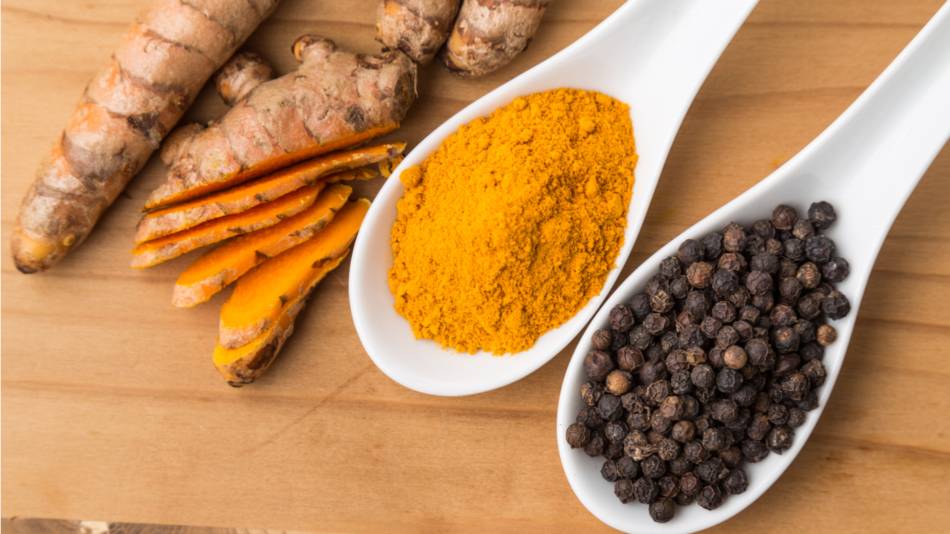
Answer:
Black pepper is not necessary for turmeric to be absorbed, but it can improve overall bioavailability, which should help with effectiveness.
Black pepper increases bioavailability, not absorption
Black pepper contains a compound, piperine, which inhibits the metabolic breakdown of turmeric compounds in the gut and the liver. This allows higher levels of turmeric compounds to remain in the body, i.e., it increases its bioavailability, which may increase the effects of turmeric.
Black pepper extracts are highly concentrated in piperine and are often added to turmeric/curcumin supplements to increase bioavailability. For example, the patented black pepper extract Bioperine, which is included in many products and sold as a stand-alone supplement, is 95% piperine (FDA GRAS Notification 2013). It is typically added to supplements at a ratio of 2.5 to 5 mg per 500 mg of curcuminoids.
However, the biggest problem with turmeric is making sure that its compounds are absorbed from the gut – and what helps most with this is taking turmeric, or curcumin, with a meal containing fats or oils (typically 15 grams or more) (see How to Take in the Turmeric & Curcumin Supplements Review). Although supplements, such as fish oil, also provide fat, the amount of fat they provide is relatively small (about 1 gram per capsule), so taking such supplements with curcumin probably helps little.
There are also special formulations of turmeric and curcumin supplements that have been developed to make curcumin more soluble for absorption and bioavailability (see Absorption and Bioavailability), but it’s not clear that these formulations are any better than taking regular turmeric or curcumin with a fat-containing meal.
Also see our Turmeric and Curcumin Supplements & Spices Review, which includes our Top Picks among products, including those with piperine and other bioavailability enhancers.
Adding regular black pepper to food
Regular ground pepper is about 2% to 7% piperine, so one-quarter teaspoon of ground black pepper (about 500 mg), contains about 10 to 35 mg of piperine (Gorgani, Compr Rev Food Sci Food Saf 2016).
In people, it has been shown that giving roughly this amount of piperine (20 mg) along with 2,000 mg of curcumin from turmeric gives an enormous 20X boost to the bioavailability of curcuminoid compounds -- which are not normally very bioavailable (Shoba, Planta Med 1998).
What this all means is that adding regular, ground black pepper to a food seasoned with turmeric will very likely increase bioavailability of the curcumin in the turmeric. For example, if you added one teaspoon (about 4 grams) of turmeric powder (spice) to your food, it would contain up to about 120 mg of curcuminoids. Adding one-quarter teaspoon of black pepper to the dish would provide more than enough piperine to greatly increase the bioavailability of this amount of curcuminoids.
Keep in mind, though, that the amount of curcuminoids in foods spiced with turmeric is still much lower than in curcumin supplements (typically 300 to 500 mg per capsule), and be aware that some curcumin may be lost due to heat and chemical changes when cooking foods. And, while piperine increases the bioavailability of curcumin, you should still consume turmeric with fats or oils to improve absorption of these compounds, and do the same when taking turmeric or curcumin from a supplement.
Safety and side effects of piperine
Piperine in black pepper not only slows the breakdown of curcumin but can also slow the breakdown of CoQ10 as well as many medications, including certain NSAIDs, and the anti-seizure and nerve pain drug carbamazepine (Tegretol, Carbatrol, Epitol). This will increase the bioavailability of these agents and their levels in the body, which can be problematic.
In addition, at higher-than-suggested doses, piperine may cause gastrointestinal side-effects and, potentially, bleeding due to an antiplatelet effect. For more details, see the Concerns and Cautions — Black Pepper Extract section of our Turmeric/Curcumin Supplements Review.
Join today to unlock all member benefits including full access to all CL Answers and over 1,400 reviews.
Join NowAlready a member? Sign In Here.
Join now at www.consumerlab.com/join/


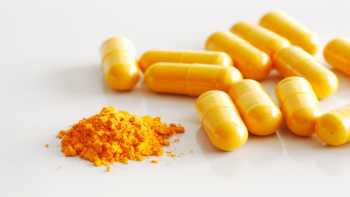
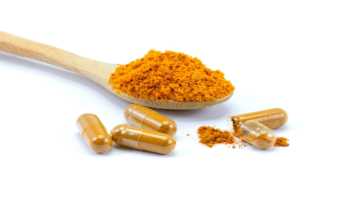
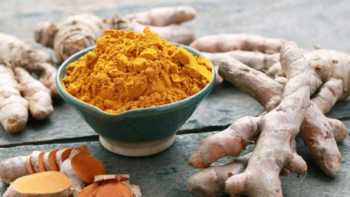






Carol21209
November 27, 2024What about fresh tumeric? Tumeric root grated or boiled for tumeric/ginger tea, also using fresh ginger?
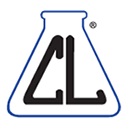 ConsumerLab.com
ConsumerLab.com
November 29, 2024Please see the ConsumerTips section of our Turmeric & Curcumin Review for information about fresh grated turmeric and turmeric tea https://www.consumerlab.com/reviews/turmeric-curcumin-supplements-spice-review/turmeric/#nasef.
Reply to this post…
Allen2453
October 31, 2021Is raw turmeric more effective than the supplements in capsule form? I current add raw turmeric to a special smoothie blend containing the turmeric, ginger, beets, and several other vegetables. I am hoping to reduce inflammation in the body.
 ConsumerLab.com
ConsumerLab.com
November 04, 2021Please see our article about adding turmeric to food https://www.consumerlab.com/answers/how-does-turmeric-spice-differ-from-turmeric-curcumin-supplements/tumeric-spice-vs-supplements/.
Reply to this post…
John2449
March 26, 2019Any information on the amount of fat needed for absorption? Type of fat? Thanks.
 ConsumerLab.com
ConsumerLab.com
March 26, 2019To aid absorption of curcumin (or other fat-soluble compound), it 's best to take it with a high-fat meal, i.e., one containing at least 15 grams of fat, so as to stimulate bile production needed to aid absorption. That' about 3 teaspoons of oil/fat. It doesn't matter what type of oil/fat, but, for other health reasons, it may be preferable that these not be saturated fats.
John2451
March 26, 2019Thank you.
Reply to this post…
tom2441
March 18, 2015But, please answer the salient question being asked. Can one add household black pepper to their turmeric spice and experience sufficient bioavailability due to the pepper addition ?
 ConsumerLab.com
ConsumerLab.com
March 19, 2015Hi Tom - If you are adding turmeric spice to your food, including some fat in the meal will increase absorption. Adding regular household black pepper could be helpful too, however, keep in mind that the black pepper extract added to supplements is much more highly concentrated and so would have more of an effect.
Reply to this post…
Frank2436
December 31, 2014What is "black pepper extract"?? I see many things listed as "extract" but don't know
what that means or where I buy "extracts".
 ConsumerLab.com
ConsumerLab.com
January 01, 2015Hi Frank - Black pepper extract is made from the black pepper plant (piper nigrum) - the same plant from which we get common black pepper, found in many people's kitchen. Some turmeric/curcumin supplements contain this as an added ingredient - you'll see it listed on the label as black pepper extract, or as a brand name, e.g. BioPerine.
Among products we've tested, you'll see this ingredient is also noted in the last column of the Results Table in the Turmeric and Curcumin Supplements and Spices Review under "Bioavailability Enhancer." Black pepper extract is also sold as a separate supplement from brands like Swanson, Source Naturals and others.
More about black pepper extract can be found in the Turmeric and Curcumin Supplements Review: https://www.consumerlab.com/reviews/turmeric-curcumin-supplements-spice-review/turmeric/#bioavailability
Reply to this post…
Walter C2431
November 05, 2014Thank you for a very helpful analysis of both curcumin and transveritrol. I will be changing some of my supplements soon. Walter C Ward M.D.
Reply to this post…